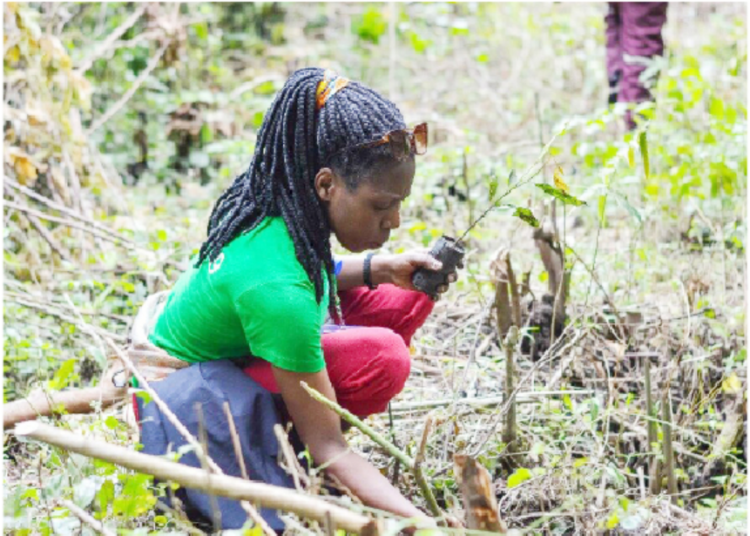As the world strives to address climate change, including resource depletion and environmental degradation, it is crucial to equip the young people with the necessary skills to build a sustainable future.
One of such skills is Green Skill which refers to the knowledge, abilities, and attitudes that enable individuals to contribute to sustainable development.
According to experts these skills encompass a wide range of disciplines, including renewable energy, waste management, sustainable agriculture, green building, conservation, and environmental education.
They say Green Skills empower young people to actively participate in environmental protection, mitigate climate change, and promote sustainable practices in various sectors.
According to the UN Green Skills are interdisciplinary and refer to knowledge, abilities, values and attitudes needed to live in, develop and support a sustainable and resource-efficient society.
If done right, green skills for youth can address several developmental and environmental concerns in Nigeria without compromising the integrity of the environment says a report by Royal Nigerian Lawyer, a Lagos-based online publication.
Youths acquiring the skills enhance their employability and contribute to creating green jobs which stimulates economic growth and promotes social equity.
Mrs Oyeyemi Pitan, Executive Director, Gem Hub Initiative, said that integrating Green Skills into formal education systems in the country was crucial.
“Governments and educational institutions should include sustainability-focused courses, workshops, and practical training to equip youth with green skills from an early age,“ Pitan told News Agency of Nigeria (NAN).
She said that offering vocational training programs in green sectors can provide young Nigerians with hands-on experience and technical skills required for green jobs.
“Governments and organisations should collaborate to establish training centres and apprenticeship programs.
“Raising awareness about the importance of green skills and their potential benefits is essential.
“Governments, NGOs, and media should actively promote green skills through campaigns, workshops, and public events to encourage youth participation,” she said.
Ms Halimah Bello, Information and Youth Engagement Officer, Africa Health Budget Network (AHBN), said that collaboration between governments, educational institutions, businesses, and civil society was crucial to promote green skills for youth.
“Partnerships can facilitate knowledge sharing, funding opportunities, and the development of comprehensive green skill development programme,” Bello told NAN.
She said that green skills for youth were vital for building a sustainable world.
“By equipping young people with the necessary knowledge, abilities, and attitudes, we can empower them to actively contribute to environmental protection, address climate change, and foster sustainable practices.
“Governments, educational institutions, and organizations must prioritise the integration of green skills into education and vocational training systems to ensure a sustainable future for all,’’ she said.
Mr Luka Panpe, a Current Affairs analyst said that Green Skills have become a significant component of an evolving society hence the youths should acquire the skills for a sustainable world.
Panpe told a National Youth Week rally in Jos that youths are the assets that could propel a progressive world beyond poverty; hunger; war and conflict; hatred; beyond human pains and frustrations.
The creation story of the world and indeed the making of `man` underscore the relevance of co-existence between man and nature vis-à-vis man and the duty of care and protection of the universe.
He said told the audience that climate change-related such as flood, hunger, farmers-herders crises, desertification, drought, excessive are connected with man’s neglect of the environment.
According to him, climate change has become a topical issue given the harm that man has caused the earth.
In Nigeria today, he said, River Niger and River Benue have resulted in danger for communities living and farming along the banks, instead of becoming a sources of wealth.
He said the 2023 National Youth celebration should explore how youths can imbibe Green Skills to advance the course of a sustainable world.
Panpe said Green Skills required internal and external knowledge and values.
“There must be the ability to invent and reinvent ideas on how to contribute towards the utilisation of natural and human resources to develop.
“The world of work is today shifting towards technology, artificial intelligence (AI), Information and Communication Technology (ICT) and the like. What this means is that a greater percentage of young people must be innovative to survive the challenges in the future,“ he said.
According to climate change experts, through research and innovation, Green Skills can enhance the understanding of renewable energy technologies, waste management, sustainable agriculture and ecotourism.
For Nigeria to tap into Green Skills potential, governments should deliberately pursue a defined green economic policy.
This should entail the drafting of a clear road map for green revolution with specific timelines for the achievement of set targets.
There should also be increased investment in agriculture and the environment through increased budget spending, procurement of climate-friendly equipment for farm; as well as refuse evacuation and conversion to wealth.
Nigeria also needs to increase awareness and entrench the culture of sanitation, tree planting, backyard gardens. Youths should be equipped to be in the vanguard of these initiatives.
Culled from NAN
We’ve got the edge. Get real-time reports, breaking scoops, and exclusive angles delivered straight to your phone. Don’t settle for stale news. Join LEADERSHIP NEWS on WhatsApp for 24/7 updates →
Join Our WhatsApp Channel










